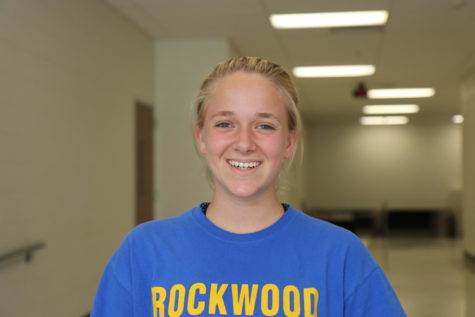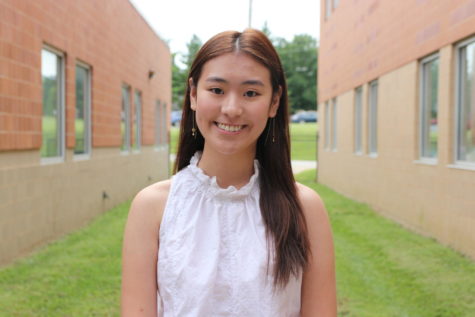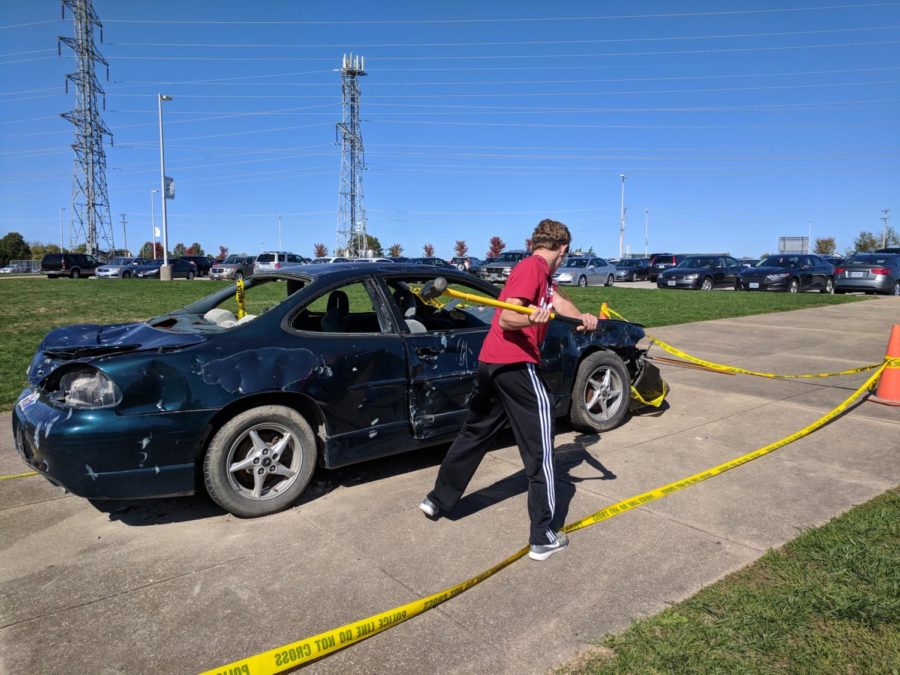SADD holds annual Car Bash event
Media by Jessica Li
Jackson Estwanick, sophomore, takes a hammer to a decommissioned car for SADD’s annual car bash. Estwanick and other students paid one dollar each to take a swing at the car.
During Wednesday, Oct. 25, the Students Against Destructive Decisions Club (SADD) held a Car Bash, where students paid to smash a car with a large mallet.
The members of SADD actively work to reduce student issues associated with alcohol, tobacco, drugs and violence, especially during Red Ribbon Week, which is dedicated to raising awareness of these problems.
“I’ve had former students who have dealt with drugs and I see the destruction as they go from experimentation to addiction,’’ Vicki Kemp, sponsor of SADD, said.
The Car Bash is specifically held to educate students on the consequences of drunk driving, which is the leading cause of death for teens.
The car comes from a local car accident, so students are able to directly see the destruction drunk driving often results in.
“Though the event doesn’t prevent drunk driving as a whole, it prevents at least one person from going behind the wheel while under the influence,’’ Kemp said.
Not only does this event educate students, it gives them a break from class to be able to enjoy themselves and have fun watching their classmates smash a car.
“We are breaking things for a good cause, and we’re relieving our own stress,” Joseph Lee, freshman, said. ”It’s a win-win.”
In addition to spreading awareness on drunk driving, SADD is also using the event as a way to raise money for the Siteman Cancer Research Center located at Washington University In St. Louis. It costs $1 for each hit to the car, and by 5th hour the club had raised over $200.
“Just asking people to donate, you wouldn’t get that much, but people are getting something out of it too, and it’s something that everyone kind of wants to do,” sophomore Allie Konopelski, member of SADD, said.
Though school educational programs of drugs are offered in schools, SADD has the advantage of using students to influence their own peers about their decisions on drugs.
“We don’t just say ‘do this’, we actually take action,” Konopelski said.
Your donation will support the student journalists of Marquette High School. Your contribution will allow us to purchase equipment and cover our annual website hosting costs. You may become a PATRON by making a donation at one of these levels: White/$30, Green/$50, Blue/$100. Patron names will be published in the print newsmagazine, on the website and once per quarter on our social media accounts.

Kayla Schweitzer, junior, is a staff reporter for the Messenger. She runs Cross Country and Track and Field, and is involved in HOSA, Jewish Student Union,...

Jessica Li, senior, is the Features Editor for the Messenger. She is also the Vice President of Membership of FBLA and a member of HOSA. She is passionate...



